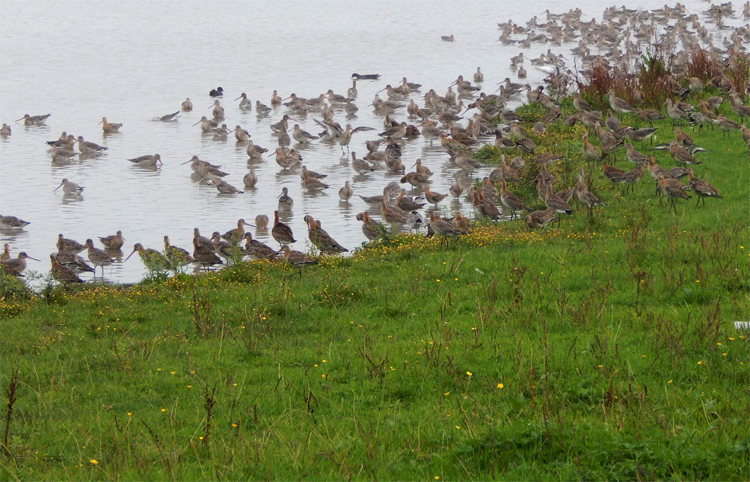Almost no empirical work has been done before on the plants dispersed by migratory shorebirds (Charadriiformes). By sampling faeces and regurgitated pellets in Doñana (Spain), England, Ireland and Iceland, scientists found intact seeds of 27 plant taxa, only four of which have a fleshy fruit widely considered diagnostic for this "endozoochory" dispersal process. Furthermore, 89% of the seeds were from terrestrial plants that are broadly distributed along the Atlantic flyway. Shorebirds are excellent vectors for long-distance dispersal (LDD), and seeds were carried by birds at the beginning or end of migratory flights between England and Iceland. This work suggests that seed morphology alone cannot predict LDD mechanisms, and that aquatic plants are not the only ones dispersed readily by shorebirds. Four alien species were dispersed, including the buttonweed Cotula coronopifolia which had a germination rate of 45% after gut passage, and is spreading quickly in coastal wetlands frequented by shorebirds. informacion[at]ebd.csic.es: Lovas-Kiss et al 2018. Shorebirds as important vectors for plant dispersal in Europe. Ecography doi: 10.1111/ecog.04065
https://onlinelibrary.wiley.com/doi/full/10.1111/ecog.04065








 Las altas temperaturas están provocando que las lagunas y las marismas de Doñana pierdan agua rápidamente
Las altas temperaturas están provocando que las lagunas y las marismas de Doñana pierdan agua rápidamente



